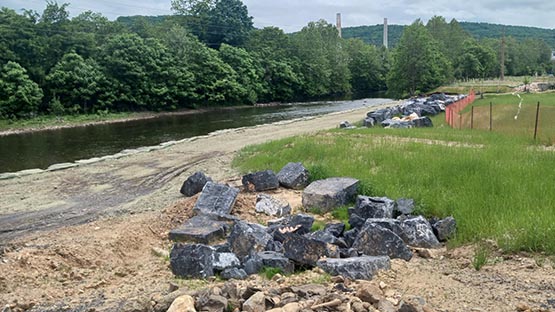
The brief, which was filed last week, urges the Third U.S. District Court of Appeals to acknowledge the intent of the Clean Water Act to reserve for states the right to implement water quality goals as related to the EPA’s proposed Total Maximum Daily Load, or TMDL.
“EPA’s power grab surrounding the chesapeake bay TMDL sets a dangerous precedent by usurping authority delegated to the states in the Clean Water Act simply because the agency disagrees with a state’s decision on implementation,” said Rep. Bob Goodlatte, R-6th, chairman of the House Judiciary Committee. He was joined in signing the brief by Rep. Robert Hurt, R-5th, and Rep. Morgan Griffith, R-9th.
“We are so thankful that our Virginia Congressmen recognize the far-reaching effects of the EPA controlling all the waters of the U.S. and are willing to stand up and fight for our right to farm,” said Virginia Farm Bureau Federation President Wayne F. Pryor.
At issue is a federal-led effort to restore the 64,000-square-mile chesapeake bay watershed by 2025. In 2009, President Obama issued an executive order for a bay restoration, prompting the EPA to seek agreements with six states and the District of Columbia that set standards to reduce nitrogen, phosphorus and sediment that drain from rivers into the bay.
The AFBF unsuccessfully challenged the multistate agreement in 2011. Now the appeals court is to decide if the EPA exceeded its Clean Water Act authority by mandating how nitrogen, phosphorous and sediment runoff should be allocated among farms, construction and development activities, as well as homeowners and towns throughout the bay watershed.
“Agencies should not be allowed to seize virtually limitless power by simply posting an expansive statutory interpretation that is not expressly prohibited,” the amicus brief says. “The chesapeake bay TMDL at issue in this case goes far beyond that delegated authority by allocating pollutant limits to specific sources, requiring states to give reasonable assurances as to how they will meet those individually allocated limits, and imposing deadlines for accomplishing the goals of the TMDL. Nothing in the CWA grants EPA such sweeping authority.”
The filing puts the lawmakers alongside 21 state attorneys general who already oppose the cleanup.
Lawmakers “have a clear interest in ensuring that Congress’s supreme legislative and policymaking role is not usurped by unelected executive branch agencies,” the brief states. “If allowed to stand, the decision … would allow EPA to usurp the traditional state authority over economic development and land-use management decisions.
“Hamstringing the states in this way runs directly counter to the CWA’s venerable policy of cooperative federalism.”










